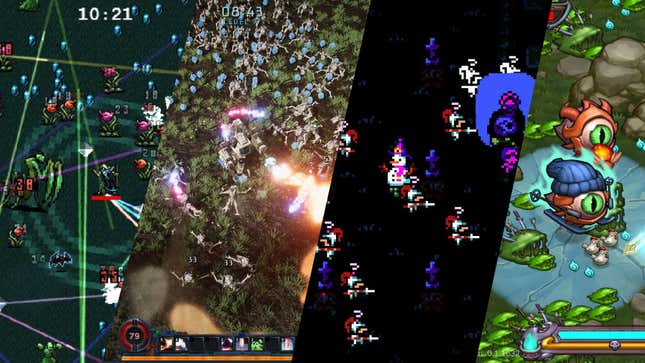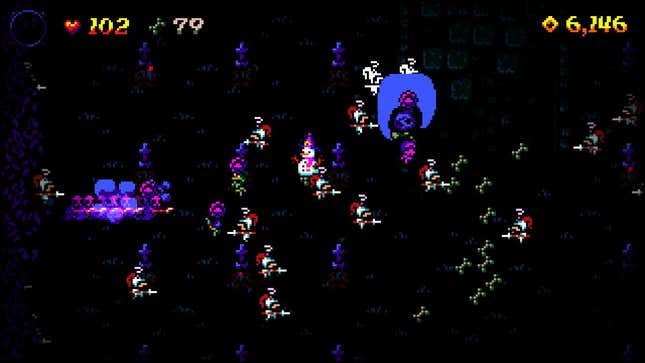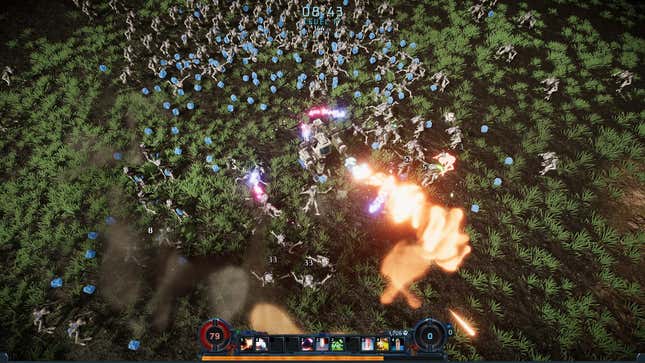
We need to set out our terms. Vampire Survivors is such a recent phenomenon that a genre name for it, and the many games appearing in its wake, has yet to be agreed upon. In fact, a lot of recent clones attempt to dress things up in ambiguous terms to pretend away the comparisons, saying things like “reverse bullet hell” and “survival game with rogue-like elements,” despite the games all obviously having much more in common with twin-stick shooters.
But these are distinct from those, too, by the specific nature of firing being entirely automated. That’s the key differential here: these are games in which new abilities are stacked, each running on their own timers, firing off automatically. That’s the criteria for inclusion here, certainly. (And yes, perhaps controversially, that means I won’t be including the fantastic 20 Minutes Till Dawn.) We have to be specific, or at a certain point this becomes a piece about Robotron-likes.
So let’s help things along by nailing it down. A lot of people are referring to “horde” games which is a good start, and given “automatic” is so essential, why don’t we agree on “Automatic Horde Shooters”? That’s clever enough, because it leaves room for people to far more interestingly innovate on the form with ideas I’ve yet to see, like say a first-person Automatic Horde Shooter. Or turn-based Automatic Horde Shooter.
Another peculiarity of the genre is price. They’re all incredibly, unnecessarily cheap. VS set a weird standard by pricing itself at just three bucks, and so many others have, presumably, felt obliged to follow suit. So you can pretty much pick up everything in this list for half the price of one regular game.
So, with a hefty acknowledgement that Vampire Survivors wasn’t the first game to deliver these ingredients, and indeed you could quite reasonably trace its origins back to 1982's Robotron: 2084, let’s take a look at a selection of games to grab when you’ve finally tired of VS.

